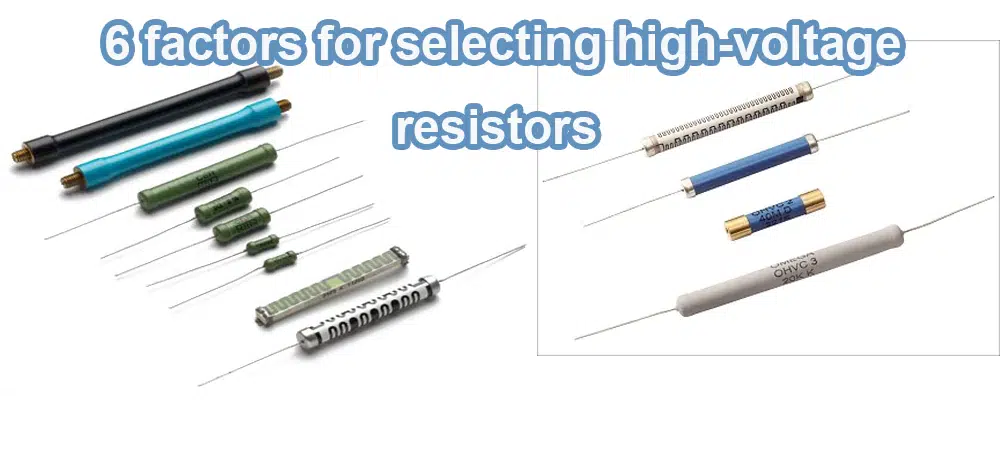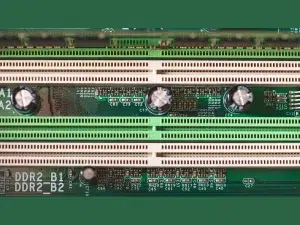High voltage resistors are resistors specially used in high-voltage circuits. Its main feature is that it can withstand higher voltages and has high resistance value and resistance stability. In fields such as power electronics, high-voltage circuits are one of the most common circuit types. For example, high-voltage circuits are required for high-voltage transmission lines, power converters, medical electronic equipment, and electronic test equipment. In these applications, due to the high voltage, electronic components with high withstand voltage characteristics are required, the most important of which are high-voltage resistors.
The parameters of high voltage resistors include resistance, accuracy, temperature coefficient and power, etc., which mainly depend on the environment in which the equipment is used and specific application requirements. Generally speaking, resistors used in high-voltage circuits have resistance values ranging from a few megaohms to several gigaohms and are capable of withstanding voltages of thousands or tens of thousands of volts. At the same time, these resistors require attention to stability and accuracy to ensure their long-term reliable operation.
At present, commonly used high voltage resistors materials include metal films, thick films, tungsten layers, and carbon layers. Among them, carbon layer resistors can withstand higher voltages, have a wide range of applications, higher accuracy and stability, and are the preferred material for high voltage resistors. At the same time, with the continuous emergence of new materials and new processes, high-voltage resistor technology is also constantly developing and updating, becoming more and more suitable for various complex high-voltage circuit applications.
In short, as a special resistance device, the main function of high-voltage resistor is to provide high resistance value and stability for high voltage circuits. For companies and engineers who produce and maintain high-voltage circuit equipment, an in-depth understanding and mastery of the performance and applications of high voltage resistors is very important to ensure the stable and efficient operation of equipment.
5 characteristics of high voltage resistors
High voltage resistors are mainly used to achieve electrical impedance or resistive voltage division in high-voltage circuits, and mainly embody the following five characteristics:
1. High withstand voltage: High-voltage circuits need to withstand relatively high voltages. Therefore, high voltage resistors need to have higher withstand voltage characteristics.
2. High resistance value: The resistance value of resistors in high-voltage circuits is usually relatively large, ranging from a few megaohms to several gigaohms, and also requires slightly higher accuracy.
3. High precision and low drift: In high-voltage circuits, deviations in resistance values may affect circuit performance and stability. Therefore, high-voltage resistors have high precision and low drift.
4. Good temperature coefficient: The temperature coefficient of electrical components refers to the extent to which the performance of electrical components changes with changes in temperature within a certain temperature range.
5. Good stability: Any circuit system composed of electrical components needs to have good stability.

6 factors for selecting high voltage resistors
1. Resistance value: When selecting, the appropriate resistance value needs to be selected based on parameters such as voltage and current in the circuit. During the selection process, factors such as voltage resistance characteristics, accuracy, and power need to be comprehensively considered.
2. Withstand voltage: High-voltage circuits need to withstand higher voltages, so the voltage-withstand characteristics of the selected high voltage resistors must be able to meet the circuit requirements, which usually need to be several times higher than the operating voltage of the circuit.
3. Accuracy and stability: Resistors used in high-voltage circuits have high requirements for resistance accuracy and stability. When selecting, attention should be paid to their accuracy grade and temperature drift.
4. Commonly used materials: Carbon layer resistors, metal film resistors, tungsten film resistors, and vacuum evaporation resistors are the four commonly used high voltage resistors materials.
5. Specifications and dimensions: The specifications and dimensions of the high-voltage resistor need to meet the circuit requirements, and factors such as installation space and heat dissipation capacity also need to be considered.
6. Brand and quality: Brand and quality also need to be considered when selecting high voltage resistors. When purchasing electronic components, you need to choose formal channels and brands to ensure product quality and after-sales service.










